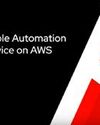
It was the late nineties, and I had about 3-4 years of development experience by then. I had just transitioned from the GSM field to the world of network management systems (NMS) after joining a multinational company in Bengaluru. Although my master’s degree was in computer networks, NMS was entirely new to me. I was familiar with hubs, routers, switches, IP addresses, RFCs, and protocols, but only in theory. This was the first time I had hands-on experience with NMS.
From a technological standpoint, I was quite proficient. I coded in C++ and worked on HP-UX, a variant of UNIX. I had experience with large-scale, mission-critical systems. In a way, I was filled with youthful confidence when I began working with NMS.
In my new role, I was assigned the task of enhancing a log analysis tool as part of a larger NMS. NMS are structured around the FCAPS model, which stands for fault management, configuration management, accounting, performance, and security. This model is defined by ISO. The log analysis tool our team was developing fell under the fault management category. Figure 1 captures the arrangement.
The requirement was straightforward: the log analysis tool needed to gather system logs from all devices across the network, store them in a database, analyse them, and take necessary actions.
This NMS was intended for use by large service providers. In the US market, the adoption of GSM mobile phones was slower compared to VoIP (Voice over IP). While mobile telephony was just beginning in India, offices were transitioning from PSTN technology to VoIP, and VoIP phones were becoming commonplace on every employee’s desk. Each time a call was made or received, or a VoIP phone was powered on or off, a system log was generated. Our log analysis tool needed to collect and analyse all these logs.
Esta historia es de la edición August 2024 de Open Source For You.
Comience su prueba gratuita de Magzter GOLD de 7 días para acceder a miles de historias premium seleccionadas y a más de 9,000 revistas y periódicos.
Ya eres suscriptor ? Conectar
Esta historia es de la edición August 2024 de Open Source For You.
Comience su prueba gratuita de Magzter GOLD de 7 días para acceder a miles de historias premium seleccionadas y a más de 9,000 revistas y periódicos.
Ya eres suscriptor? Conectar

Linux Foundation launches LF India to foster open source innovation and support in India
The Linux Foundation, a nonprofit organisation dedicated to driving innovation through open source, has announced the launch of LF India.

Red Hat launches Ansible Automation Platform Service on AWS
Red Hat, Inc., has announced the general availability of the Red Hat Ansible Automation Platform Service on Amazon Web Services (AWS) as a managed offering available through AWS Marketplace.

Fedora Asahi Remix 41 is now generally available
The Fedora and Asahi Linux projects have announced the general availability of Fedora Asahi Remix 41, the latest version of this distribution tailored for Apple Silicon Macs.

SageMath: A Second Glance at Cybersecurity
The eighth article in the series on SageMath explores a classical encryption scheme called the Rail Fence cipher and introduces the concept of symmetric-key encryption.

Building Cross-Platform Mobile Apps with lonic
Mobile apps are an intrinsic part of daily life today we use them to order food, groceries, taxis, and more. As these apps need to work across platforms, developers are focusing on cross-platform app development so that they code only once to create apps that function on multiple platforms. lonic is a framework that can help developers build apps faster than with native app development, while saving them time and money. Let’s learn how to install and deploy it.

Open Source AI Frameworks: Integrating AI with lot
Open source Al helps loT devices learn, adapt, and automate actions based on real-time data, improving convenience and security. Here’s an overview of six key open source Al frameworks that help integrate Al with loT, and the challenges they face.

Open Source loT: A Primer for Everyone
Open source IoT platforms promise to play a central role in shaping the future, making it possible for more people and businesses to benefit from smarter, more efficient solutions. We look at a brief history of this tech and explore emerging trends.

Using Open Source and Blockchain to Build Decentralised loT Networks
Explore how blockchain is being integrated with loT to create decentralised networks. Find out how leading open source projects like IOTA and Streamr use blockchain to ensure data integrity, security, and privacy in loT ecosystems.

Internet of Things: Running Language Models on Edge Devices
Let’s delve into the technical aspects, challenges, and benefits of deploying language models on edge/loT devices.

How Open Source is Making Quantum Computing Accessible to Everyone
Open source initiatives are breaking down the barriers to quantum computing, making it accessible to everyone. Explore what quantum computing is, the challenges of traditional adoption, how open source platforms are democratising the technology, and how you can get started in this exciting domain.